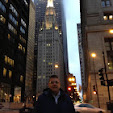Caracas, 17 Jul. AVN.- The anti-Chavez coalition that organized an internal plebiscite, posing three questions disregarding the democratic government and its institutions, said at a press conference the activity had a voter turnout of 7,136,170 people.
It should be noted that the electoral material used for this internal activity of political turmoil was incinerated, so that some kind of audit on the announced figures is impossible. In addition, the lack of rigor of a mechanism to record wills allowed citizens to vote in more than one opportunity.
Of the total figure, 693,789 surveys come from points seated abroad, according to what organizers announced.
Electoral analysts question the figure announced, because they consider that with only about 2,000 "sovereign points" it was, for reasons of time, impossible to achieve such participation.
At the end of the afternoon, a violent event in Catia, a poor neighborhood in west Caracas, led to an irregular situation in which three people were injured, and a 60-year-old woman, Xiomara Scott, was murdered.
The opposition leadership demanded its followers to validate with their signature: to ignore the constitutional power of the President of the Republic to call for a constituent process; to support the Legislative Power –controlled by an opposition majority– to rise it up as a super power and be supported by the Bolivarian National Armed Force (FANB), and finally, to dissolve these powers and to interrupt the constitutional period of the elected government by majority vote.
Prior to the announcement of the "results", international political actors invited to serve as "observers" reiterated their interference in Venezuela's internal political affairs, through a press conference.
Andres Pastrana, a former Colombian president, well known for the increase in drug production and the displaced during his term, said that "it was never seen before that a community of people arrange an electoral event without support from its government."
Jorge Quiroga, former president of Bolivia after the death of Hugo Banzer, and accused of crimes against the Constitution and economic damages for the Petrocontratos case, ordered in a clear intervention message that the FANB must not support the holding of a constituent assembly. "The Constituent Assembly must be withdrawn," he threatened.
Laura Chinchilla, former president of Costa Rica, linked with Colombian drug trafficker Gabriel Morales, said the opposition "has responded to repression with democracy" despite the fact that anti-Chavez coalition leaders have been pushing for more than three months the violence through daily calls to violate the rights to free movement, health, education and life.
Miguel Angel Rodriguez, former president of Costa Rica, and his country's first president to be arrested and tried for corruption cases, denounced that "the government turned its back on the people, but they did not give up," referring to the inability of the opposition to organize and activate the necessary requirements for the Recall Referendum that they tried very late against President Nicolas Maduro.
Vicente Fox, former president of Mexico, was not present because he returned to his country before the end of the activity.






0 comentarios:
Publicar un comentario